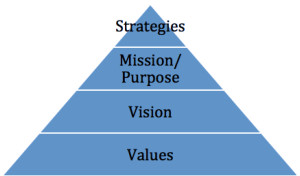Creating Lasting Value
LinkedIn affords business people the opportunity to learn from many important thought leaders through their posts. Among others, I follow the posts of Gerald Hassel, Chairman and CEO of BNY Mellon.
Hassell has published several posts on Alexander Hamilton, one of our nation’s founding fathers. He is interested in Alexander Hamilton not only because he founded the Bank of New York, of which Hassell is now chairman, and not because of the award-winning musical Hamilton, now playing on Broadway. He writes about Alexander Hamilton because he believes that Hamilton’s virtues hold lessons for today’s leaders.
In his LinkedIn post published June 9, 2106: “What Have You Done Today that Will Endure?” Hassell noted Hamilton’s ability to create institutions of lasting value, in contrast to the current trends of our increasingly disposable culture.
This immediately struck me as illustrating a mindset of long-term thinking that I have written about with regard to building multi-generational family businesses. In “Grow People” I quoted a Chinese proverb that formulates a strategy for 100 years of prosperity. In “Beneath the Surface of the Ground” I wrote about a Native American culture whose chiefs were mandated to make every decision with the seventh subsequent generation in mind.
The crucial question to ask is “what are we doing today that will create an enduring legacy and heritage for our family enterprise?”

